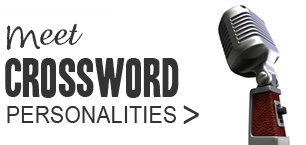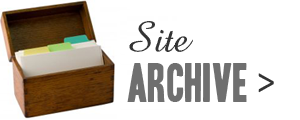| It is time for the concluding part of the trilogy on crosswords in Indian languages by our multilingual friend Kishore. In this post, Kishore gives us an introduction to the fascinating nature and history of Konkani, a language spoken by a comparatively small subset of the Indian population, and sets for us what might be the first-ever cryptic crossword in Konkani. - Shuchi |

A little background for those who would like to know more. The maim-bhas (mother tongue) is officially called Konkani (variant spellings: KonkNi , KokNi or Concanim) and also referred to as Amchigele (our language/people), further shortened to just Amchi by some. Other names include Gomantaki, Goenchi, and Goani, though the once-used name Goanese is now frowned upon. Spoken along a swathe of land about 750km long alongside the Arabian Sea, Konkani has various dialects that change every 100km or so. Starting from Malvani in the southern coastal districts of Maharashtra, it metamorphoses into the close-to-Marathi variety of Konkani spoken by the Hindus in Goa (where it is the state language). Goan Christians speak a dialect that has travelled to far off places like East Africa, the Middle East and Canada – this dialect shows some influence of Portuguese, with usage of words like Adeus, Juramento, and Kazar. Just south of Goa, in Karnataka’s Uttara Kannada district, you find the Karwari dialect giving way to the Navayati dialect in Bhatkal, which has been carried to Karachi by the diaspora. Further, south in the Dakshina Kannada district of Karnataka, the Mangalore Catholic and Goud Saraswath Konkani can be heard, with words borrowed from Kannada. Deep South, in Kerala, another dialect is spoken with some loan words from Malayalam.
Konkani belongs to the Indo-European family of languages, thought to have evolved from Prakrit and brought down to the west coast by migrants from Gaur area in present day Bihar and West Bengal. The nearest Indian language is Marathi, though Konkani speakers would argue vehemently against Konkani being called a dialect of Marathi. Konkani is a spoken language -that is it has no script of its own but thrives on borrowed scripts rangingfrom Devanagari to Roman to Kannada to Malayalam. This also means that whatever little is written in one script may not be accessible to all speakers as all speakers may not know all scripts. This, certainly, is a sorry state of affairs for a language which probably had one of the first printed dictionaries in India, courtesy the Jesuit clergy. Efforts are on to revive the language1, but these are few and far between and fall prey to the schism of different scripts.
As a humble effort to generate some interest, I thought of making a cryptic crossword in Konkani. I had a dilemma: whether to use an abugida like Devanagari or the alphabet-based Roman script. I eventually chose the Roman script, hoping that a larger number of persons would be able to participate2. The clues use a mix of dialects and, wherever possible, the Goan method of spelling. Hence, ‘x’ stands for “sh” and not “ksh”. Well, while the result was not hundred percent cryptic, quite a large number and variety of clues turned out to be cryptic.
While I am aware that the intersect of the cryptic crossword community and the Konkani-knowing people is pretty small, I hope this leads to one set taking interest in the other. I have provided the translation for those who don’t understand Konkani, though that, by itself, would not necessarily help them to solve the puzzle. Compared to a standard English crossword, there is a little too much black space, but I have tried to give it a distinctive Konkani flavour. So here goes, warts and all:

Across
2 60 varxem zattana khavche goD khaaNa (5) The sweet-meat to eat when becoming 60 years old5 Pada maNtana yevcho kopu (4) The anger one gets while singing
7 Nhavchaka upyogu korche hoD aidan (6) Large vessel used while bathing
9 Sakalhin kaLok vochun hye ieta (7) This comes in the morning, after the darkness goes away
11 Nantar-vaila poLoyati – see next clue
12/11 Dr Ramesh Kamthile Konkani cholche-chitra (4,4) Konkani movie made by Dr Ramesh Kamath
14 Bailyaan makxi dhanvtalo (7) One who runs after ladies
18 KunkaD hantulyan ieta, ki hye kunkaDachan ieta? (6) The hen comes from this, or does this come from the hen?
19 Kaam korcheak makxeatolo (4) One who shies from work
20 Hyo Isrealcho prodhani Goyanthu voggi zata (5) This Israeli prime minister is early in Goa
Down
1 Kaaxantu axchem protham dhravyo (5) The main metal in bronze2 Goemcho reeti: aaj korcho kaam, phallyan kor (8) Goan way: What’s to be done today, do it tomorrow
3 Khavcheak javcho vimaan? (4) Eatable airplane?
4 Igorjeanto hyea povitra zata (5) This gets pure in the Church
6 SoggLeam meLLyari hyea sorna (4) This does not end, even when you get everything
8 Goenchen cantaar, hyea MangaLuraantu khatachi (5) Goan song, eaten in Mangalore
9 Bautismaak upyogkorche tirth (5) Sacred stuff used for baptism
10 Shevain piLchaak yantr (8) Machine to make string hoppers
13 VaaDi na hantu, badachi (4) Really, no interest in this
15 Maska ghalunk hye zavka (5) This is required to butter people
16 Khavche bamboo zhaad (5) Eatable bamboo plant
17 Mando, Dekhni and Dulpoda-pashin lokapriya yeh Batatya ---- (4) This potato composition is more popular than the Mando, the Dekhni and the Dulpod.
Note: Since the spellings are not standardised in Konkani, some solvers might have different spellings in their minds. I have tried to stick, as far as possible, to the Konkani dictionary compiled by Mohan Prabhu3 and the grammar as enunciated by AFX Maffei 4. Please excuse me if my spelling is different from yours.
For people with different points of view, I quote the Chief Minister of Goa, Manohar Parrikar
[source: Vauraddeancho Ixtt]:
Konknni bhaxecho nhoi punn proxnn asa to lipicho. Bhaxa mog korpa khatir asta, zhogddim korpa khatir nhoi ....
[It is not the question of the Konkani language, but of its script. Language is for loving, not for fighting…]
Links to other Konkani sites: Goan Konkani songs, Gulab magazine, Guencho Ulo, Goa World.
Merry Christmas and happy solving to all.
Dev Borem Korum.
Notes:
- Admirable efforts have been made by World Konkani Centre at Mangalore and Save My Language.
- In his introduction to Konkani grammar, Maffei puts it like this: “Now the Kanarese Alphabet is generally used, and although it does not express all Konkani sounds, yet it is better adapted for this than the Latin Alphabet. But as the Kanarese script is not known to a greater part of my brethren, for whom I write, I shall use the Latin Alphabet, with the required modifications...”
- Available at Konkani Foundation.
- Available at A Konkani Grammar on Open Library (this includes some books from the Holy Bible in English and Konkani, written both in the Kannada and Roman scripts)
The answer grid is printed below. For people unfamiliar with Konkani, two things might stand out. First, the comparatively frequent usage of the sound ‘z’ and ‘zh ’ in both the clues and answers. Look at this famous line from Genesis1:3: “Ani devan mollen: uzuad zaundi. Ani uzuad zallo”=”And God said: Let there be light. And there was light”. Second, some answers look like English words, but have nothing to do with the English word they look like.

Related Posts:
If you wish to keep track of further articles on Crossword Unclued, you can subscribe to it in a reader via RSS Feed. You can also subscribe by email and have articles delivered to your inbox, or follow me on twitter to get notified of new links.








 Follow on Twitter
Follow on Twitter Join us on Facebook
Join us on Facebook Get RSS
Get RSS

9 comments
Kishore in his elements as usual
This is fabulous stuff Kishore. Of course, I don't have the foggiest what it all means, but I can appreciate the effort and commitment behind it
Thanks. Lots of people have told me that I should be committed ;-)
You could be certified for Konkani crosswords!
First and foremost Kishore MUST learn how to write Konkani in Roman script. And then attempt a crossword in Konkani. Every word is incorrectly written.
agnelo Pires
I draw the attention of Mr Pires to the following lines in the article:
"I have used a mix of dialects, but stuck to the Roman script, hoping that a larger number of persons are able to participate2. I have stuck to Goan method of spelling, wherever possible."
"Please excuse me, if my spelling is different from yours."
Mr Pires comments only illustrates what I wanted to highlight: the schism of dialects and scripts that divide the language. Even in Goa, where the language is available in school a very small portion of students take it up for academic studies and most manage with what they have learned in an unorganized manner outside.
Quite brilliant Kishore, haav attha tugele pankha :)
Thanks, Ajith. Khanchey kaLni zalaar saang
Sharing FB post by
Manguesh Sirdeshpandey
a razão é que konkani tem 5 scripts diferentes ... em si Goa temos 2 scripts Devnagari e romanos! Nos canaras, temos Kannada e perso-Árabe [muçulmanos navait] e no roteiro malayalam Kerala! assim, o crescimento e compreensão, sofre muito! Esforços devem ser feitos para unir todas as seções e evoluir uma fórmula de compromisso! Não deviam ser política nesses esforços ... para o benefício de konkani e os alto-falantes de Concani!
Post a Comment